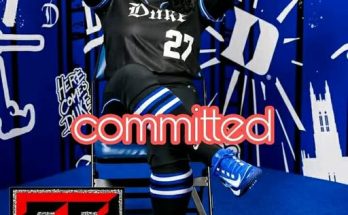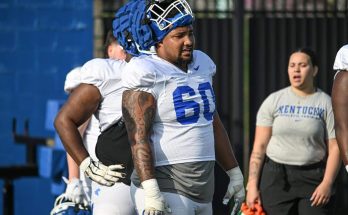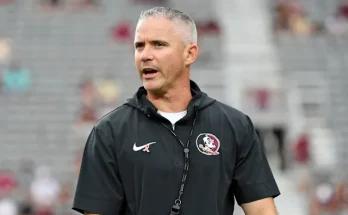The Seattle Mariners’ recent winning streak was always bound to end eventually, but the manner in which it concluded has left a sour taste in the mouths of many fans, myself included. While baseball is a game of streaks, ebbs, and flows, there are losses that can be chalked up to the unpredictable nature of the sport, and there are losses that feel self-inflicted. Unfortunately, yesterday’s defeat fell firmly into the latter category. With only 41 games remaining in the regular season, and with the team locked in a battle not just to secure a playoff berth but to claim a division title and a valuable first-round bye, there is little room for questionable roster decisions. Every lineup choice, every substitution, and every strategic move from here on out carries more weight than at any other point in the season, and yet the Mariners appeared to undermine their own momentum through a baffling set of decisions that left many scratching their heads.
The continued presence of Dylan Moore on the roster has become one of the most glaring points of frustration among fans. Moore has been part of the Mariners’ organization long enough to have earned some goodwill for past contributions, but the current reality is inescapable: his production at the plate has completely fallen off a cliff, and his defense has been far from reliable. Since May 28th, Moore has accumulated 38 strikeouts and just two hits—a staggering level of inefficiency for a player seeing this much playing time. It is one thing for a player to endure a slump; it is another for that slump to stretch over months with no clear sign of recovery, all while occupying a roster spot on a contending team.
Yesterday’s decision to start both Moore and Mitch Garver, with Garver serving as the designated hitter, was puzzling at best and indefensible at worst. Garver, while a capable backup catcher and someone whose bat has historically been serviceable, has been in a tailspin of his own lately. Over his last 19 appearances, he has just one hit to his name and has struck out 10 times. The designated hitter position exists to inject offensive firepower into the lineup, not to serve as a placeholder for a struggling bat. In this context, starting Garver in that role felt like a misallocation of one of the most valuable spots in the order. Pairing that decision with Moore’s inclusion in the starting lineup only compounded the problem, effectively placing two offensive black holes in the batting order at a time when runs are at a premium.
Beyond the offensive woes, Moore’s defensive showing in the outfield during yesterday’s game only reinforced concerns about his viability. Poor reads off the bat and questionable angles to balls in play are issues that cannot be overlooked, particularly in the late stages of a tight division race where every run saved could be the difference between a win and a loss. Defense has long been a hallmark of the Mariners’ competitive identity, but it becomes undermined when players who are struggling in both phases of the game are entrusted with significant playing time.
The frustration here is not just about one game, nor is it entirely about Moore or Garver individually. It is about what their usage represents—a willingness to accept suboptimal performance in critical situations, perhaps out of a sense of loyalty or hope that struggling veterans will suddenly turn things around. This is not to suggest that teams should abandon players the moment they hit a rough patch, but in a pennant race, sentimentality must take a back seat to results. The margin between winning the division and falling into the Wild Card Round can be razor-thin, and the difference between a five-game Division Series and a grueling three-game Wild Card matchup could very well come down to decisions made in August and September.
The Mariners are in a unique position this year. With their current record and the state of the standings, a postseason berth feels almost certain, barring a complete collapse. That said, the difference between coasting into the playoffs as a division champion with home-field advantage and being forced to grind through the Wild Card series is enormous. A first-round bye allows a team to rest key players, align its rotation, and enter the Division Series fresh, while a Wild Card berth exposes a team to the volatility of a short series where one bad inning can end the season. In other words, these remaining 41 games are not just about making the playoffs—they are about maximizing the team’s chances once they get there.
Given that context, the decision to continue running Moore out there is increasingly difficult to justify. The Mariners have options, even if those options are not ideal. Victor Robles, for example, offers a far more reliable defensive profile, but his health remains a question mark. Rather than waiting indefinitely for his return, the team could turn to Triple-A for reinforcements. There is almost certainly a player in the minors who, while perhaps unproven at the MLB level, could provide at least a league-average level of production and defense—something Moore has not been able to deliver in months. Even a marginal upgrade in either offense or defense could pay dividends down the stretch.
Fans understand that baseball rosters are not static, and that injuries, slumps, and performance swings are part of the game. What they find harder to accept is when a team appears unwilling to make the adjustments necessary to address glaring weaknesses, especially when those weaknesses are evident to anyone watching the games. Moore’s situation has crossed the point of being a minor concern—it is now a persistent liability, and one that could have tangible consequences on the team’s final record and playoff positioning.
What makes this even more frustrating is that the Mariners have shown themselves to be capable of making shrewd roster moves in the past. This is an organization that has found ways to extract value from unexpected sources and to piece together competitive lineups despite injuries and setbacks. But that track record only heightens expectations. When the front office and coaching staff make decisions that appear to fly in the face of both statistical performance and the eye test, it invites scrutiny and criticism.
It is worth noting that the players themselves are not immune to the pressure of this situation. Moore and Garver are surely aware of their struggles and of the growing dissatisfaction among fans. Baseball is a mental game as much as it is physical, and prolonged slumps can become self-perpetuating if a player begins pressing too hard to produce. That being said, the responsibility of the coaching staff is to put players in positions where they can succeed—not to expose them repeatedly in roles that highlight their weaknesses.
The Mariners’ front office and coaching staff have to approach the next six weeks with the urgency of a playoff series. Every lineup card should be crafted with the understanding that the stakes are already high, because they are. The temptation to “wait it out” with struggling veterans, hoping they rediscover their form, is understandable in April or May. In mid-August, with the division race tightening, it becomes a luxury the team cannot afford. This is the point in the season where proactive decisions—whether that means making a tough roster cut, promoting a hot hand from the minors, or adjusting roles—can make all the difference.
Baseball history is littered with examples of teams that missed out on a division title by a game or two, only to see their postseason runs cut short in the Wild Card Round. It would be a bitter pill for Mariners fans to swallow if this year’s team, with all its potential, fell into that trap because of avoidable roster decisions. The window for success in baseball can be fleeting; the Mariners have a real shot not only to make the playoffs but to make a deep run. Squandering that opportunity over misplaced loyalty or inertia would be a mistake that lingers far longer than the memory of any single winning streak.
In the end, the frustration surrounding Dylan Moore’s continued presence on the roster is about more than just one player. It is about the message it sends regarding priorities and competitiveness. The Mariners have fought too hard and come too far to let preventable mistakes derail their momentum. If the goal is truly to win the division and set themselves up for the best possible postseason path, then every decision from here on out must be made with that singular objective in mind. That means making the difficult choices now—because waiting until October will be far too late.



